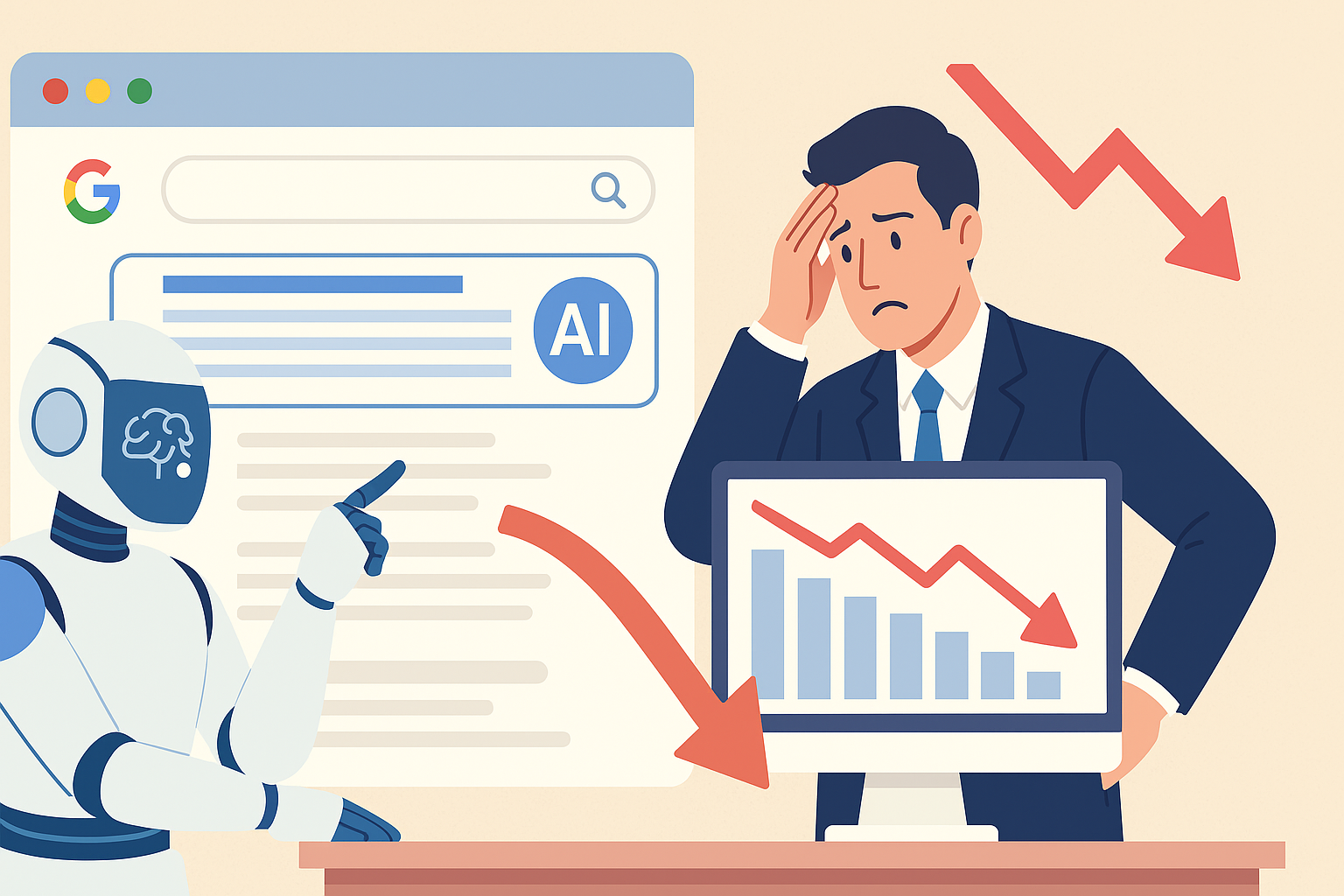In the last few years, Artificial Intelligence (AI) has completely changed the way search engines work — and how users interact with content online. From AI-powered search tools like Google’s Search Generative Experience (SGE) to smart assistants like ChatGPT, the way people discover and consume information is evolving fast.
But here’s the big question for businesses: Is AI cutting into your SEO conversions? And if yes, how can you adapt so your leads and sales don’t drop?
At Bibyan Innovations, we help brands navigate these changes with the right digital marketing strategies to stay competitive and profitable.
How AI Is Changing Search Behavior
Traditionally, SEO was all about ranking high on Google and getting users to click your link. But with AI search results now giving instant answers directly on the page, some users never click on a website at all.
This is known as zero-click searches — and they are becoming more common. For example:
- AI tools summarize answers right at the top of the search page.
- Featured snippets and rich results give quick information without a click.
- Voice assistants like Siri or Alexa read out answers without sending traffic to websites.
If your business relies only on organic clicks, you might see a drop in website visitors over time.
Why AI Might Be Reducing Conversions
- Less Website Traffic – If AI answers a user’s query directly, fewer people visit your site.
- Shift in User Intent – People now search differently, using conversational queries and expecting instant results.
- AI Content Saturation – With more AI-generated articles online, competition for attention is higher than ever.
The result? Even if your site ranks well, you may get fewer clicks and conversions unless you adapt your strategy.
How to Protect and Grow Your SEO Conversions in the AI Era
At Bibyan Innovations, we’ve seen first-hand how smart adjustments can keep conversions strong — even with AI dominating search results. Here’s what works:
1. Focus on High-Value, In-Depth Content
AI is great at giving short answers, but it struggles with detailed, expert-level insights. Create long-form, value-packed content that positions you as an authority and drives users to engage with your brand.
2. Target Transactional Keywords
Instead of focusing only on general information keywords, go after purchase-intent keywords like “best digital marketing agency in India” or “affordable SEO services for startups.” AI summaries can’t replace the need for a service provider when someone is ready to buy.
3. Build a Strong Brand Presence
When people know and trust your brand, they’ll search for you directly — bypassing AI answers. Invest in social media marketing, branding, and retargeting campaigns to keep your brand top of mind.
4. Optimize for Featured Snippets and AI Panels
If AI is going to display information on the results page, make sure it’s your content being quoted. This builds trust and encourages clicks.
5. Use AI as an Ally, Not an Enemy
Leverage AI for SEO keyword research, content outlines, and personalization — but keep human creativity at the center to make your content unique and emotionally engaging.
The Future of SEO in an AI-Driven World
AI is not going away — it’s becoming more powerful every day. Instead of resisting it, smart businesses are integrating AI into their digital marketing strategies while focusing on the human touch that AI cannot replicate.
If you want your business to stay ahead, you need SEO strategies that adapt to AI trends, focus on conversion-driven keywords, and keep your brand visible across multiple channels.
Final Thoughts
Yes, AI can reduce your SEO conversions — but only if you don’t adjust your approach. By creating high-value content, targeting intent-driven keywords, and building a strong brand, you can not only maintain your conversions but actually increase them in the AI era.
At Bibyan Innovations, we specialize in SEO, content marketing, branding, and marketing strategies that keep our clients ahead of the curve — no matter how search engines evolve.
Need help protecting your SEO conversions from AI disruption? Contact us today and let’s craft a strategy that works in 2025 and beyond.

No responses yet